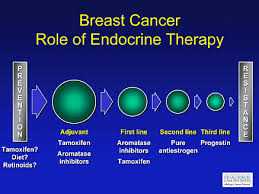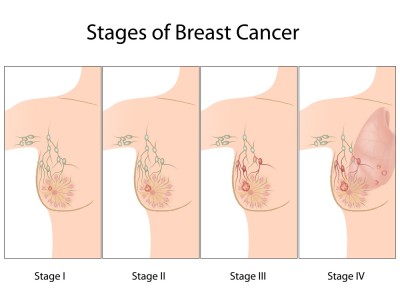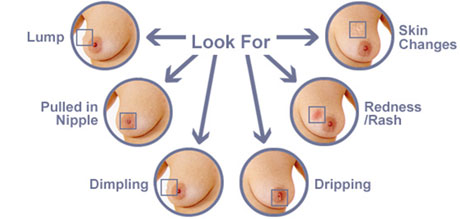The Cancer Symptoms you must not ignore
The Cancer Symptoms you must not ignore: Be mindful of changes in your Body

The Cancer Symptoms you must not ignore are many and common. Any changes must be taken seriously however small they may appear
In growth and development we are often faced with various changes in our bodies. Most of these changes are always positive and encouraging. However there are some changes which we must never ignore. In the advent of so many diseases moving around, it is advisable that we take keen interest in the changes taking place in our bodies however small they maybe. You may never know the cancer symptoms you must not ignore could be among those little changes. Health professionals recommend that nothing should be left to chance. Like for example, women’s bodies are always changing rapidly from time to time. It may not be clear, but occasionally those changes that appear normal and harmless could actually be the signs of cancer in the making. Therefore, the best remedy is to pay attention to your body consistently so that in the event you can notice something’s different, then speedy action can be taken. The experts at AWAREmed Health and Wellness Resource Center recommends that, every time a new symptoms appears, then that is an indication that something has changed in your body and you must by all standards get to know what that means. If you have not been keen in making observations to your body, then it is not too late to begin today. We will be here for you to help you establish what it really is. We must pool together to lock out all forms of cancer out of our lives and as professionals at this facility under the able leadership f doctor Dalal Akoury, that is what we want to help you achieve. Now the following are some of the changes you should watch out for:
The Cancer Symptoms you must not ignore: Breast changes
It is true that most breast lumps are not really an indication of cancer, but it is important that your doctor should always check them. Let your doctor also to know about these changes as well:
- Skin dimpling or puckering
- Nipples that turn inward
- Nipple discharge
- Redness or scaling of your nipple or breast skin
While at your doctor’s office, they may do certain physical exam and ask you a few questions about your medical history. You may also have tests like a mammogram or a biopsy this is when doctors remove a tiny piece of tissue for testing.
Bloating
Women are natural bloaters. It’s OK to wait a week or two to see if it goes away. If your symptoms don’t get better with time, or if they happen with weight loss or bleeding, see a doctor. Constant bloating can sometimes mean ovarian cancer. In this case you’ll have a pelvic exam as well as blood tests, and sometimes an ultrasound, to look for the cause of the problem.
Between Period Bleeding
Bleeding during your normal monthly cycle is okay, however bleeding which is not a part of your usual monthly cycle can have many causes. Your doctor will want to rule out endometrial cancer (cancer of the lining of your uterus). Bleeding after menopause is never normal and should be checked right away without any hesitation.
A change in the size, shape, or color of a mole or other spot is a common sign of skin cancer. See your doctor for a thorough examination and perhaps a biopsy. This is one time you don’t want to wait.
The Cancer Symptoms you must not ignore: Blood in Your Pee or Stool
Talk to your doctor if you’re bleeding from a part of your body that normally doesn’t, especially if the bleeding lasts more than a day or two. Bloody stool is often from hemorrhoids, but it can also be a symptom of colon cancer. Bloody urine is usually the first sign of cancer of the bladder or kidneys.
Changes in Lymph Nodes
Lymph nodes are small, bean-shaped glands around the body. Most changes in them come from common infections. But some cancers, including leukemia and lymphoma, can also cause lymph nodes to swell. It’s a good idea to see your doctor if you have a lump or swelling anywhere in your body that lasts a month or more.
Trouble Swallowing
Occasional trouble swallowing is nothing to worry about. But when it happens often, especially with vomiting or weight loss, your doctor may want to investigate the possibilities of throat or stomach cancer. The health care professional will consider your symptoms with a throat exam and a barium X-ray. During a barium test, you drink a special liquid that makes your throat stand out on the X-ray.
Most women wish extra pounds would magically melt away. But losing 10 pounds or more without a change in your diet or exercise habits could signal a problem. Most unintended weight loss is not cancer. It’s often caused by stress or your thyroid, but it can be a sign of pancreatic cancer. Stomach and lung cancers are also possible.
The Cancer Symptoms you must not ignore: Heartburn
Too much food, alcohol, or stress (or all three) can cause serious heartburn. Experts will suggest that you change your diet for a week or two to see if your symptoms get better. In the event that it persists seek medical treatment from your doctor. And remember that heartburn that doesn’t go away or gets worse could mean cancer of the stomach, throat, or ovaries.
Mouth Changes
Smocking may give you a very good indicator about the cancer symptoms you must not ignore. Ensure that if you’re a smoker, watch for white or bright-red patches inside your mouth or on your lips. Both can signal oral cancer.
Fever
A fever that doesn’t go away and can’t be explained could mean leukemia or another blood cancer. Your doctor should get the details of your medical history and give you a physical exam to check for the cause.
A lot of women are tired because they lead hectic lives. But extreme tiredness that won’t go away isn’t normal. Talk to your doctor if your fatigue never gets better or if you have other symptoms, like blood in your stool. Your doctor will ask for your complete medical history and give you blood tests.
Cough
Most coughs go away on their own in 3 to 4 weeks. Don’t ignore one that lasts longer than that, especially if you smoke or are short of breath. If you cough up blood, go to the doctor. A cough is the most common symptom of lung cancer.
Pain
Cancer doesn’t cause most aches. But ongoing pain can signal bone, brain, or other cancers. Ask your doctor about any unexplained aches that last a month or longer.
Belly Pain and Depression
It’s rare, but belly pain plus depression can be a sign of pancreatic cancer. Should you worry? Not unless pancreatic cancer runs in your family. Then you need a prompt [exam]. Finally were only highlighting some of the cancer symptoms you must not ignore and if you are very keen in this article, you must have noticed that a lot is pegged on doctor patient consultation. This is very important and we want to invite you schedule for an appointment with the experts at AWAREmed Health and Wellness Resource Center for direction so that no mistakes is done.
The Cancer Symptoms you must not ignore: Be mindful of changes in your Body









